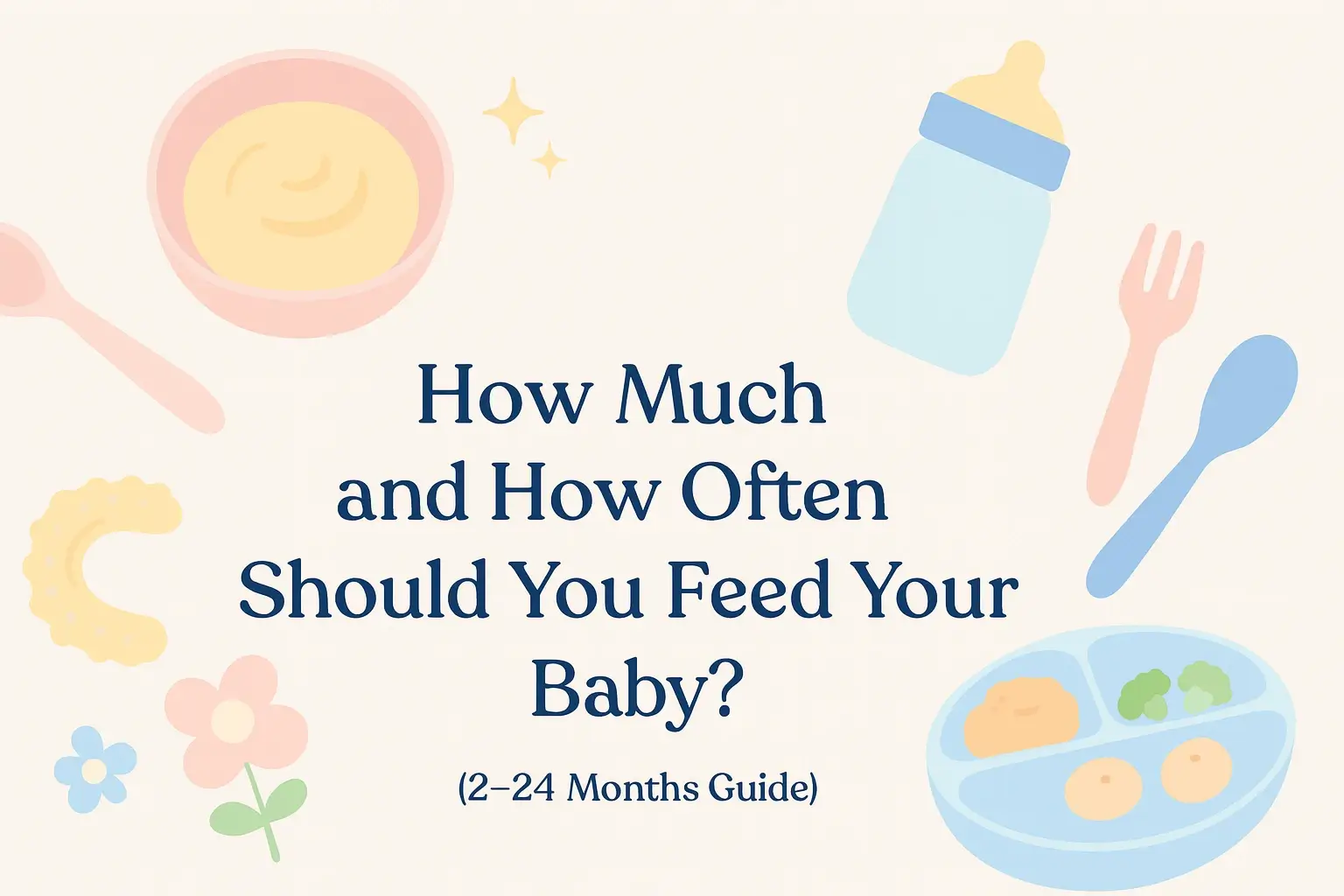Address
304 North Cardinal
St. Dorchester Center, MA 02124
Work Hours
Monday to Friday: 7AM - 7PM
Weekend: 10AM - 5PM
Address
304 North Cardinal
St. Dorchester Center, MA 02124
Work Hours
Monday to Friday: 7AM - 7PM
Weekend: 10AM - 5PM

At this age, your baby needs only breast milk or formula. No solids yet.
Babies this age often wake at night to eat — totally normal. Don’t worry about solids just yet. Their little stomachs are still growing.
By 4 months, babies may eat a bit more in one sitting and stretch out time between feedings.
Start solids slowly when your doctor says it’s okay. A spoonful or two once a day is plenty — mashed banana, sweet potato, or baby cereal are good choices.
By now, you’ll start adding more variety to your baby’s diet.
Try soft finger foods like avocado, scrambled eggs, or well-cooked veggies. Expect messes — they’re learning!
As chewing improves, babies can eat small portions of family meals (chopped or mashed).
Introduce a wide variety — pasta, tofu, soft meats, fruits, veggies, and cheese. Self-feeding with a spoon may begin now.
After 12 months, you can switch from formula to whole milk if not breastfeeding. Most toddlers need:
Portions can stay toddler-sized — a few spoonfuls per item is plenty. Appetite will vary day to day. Let your toddler guide the pace and amount they eat.
Water should be the main drink between meals. Avoid sugary drinks and keep juice minimal or skip it entirely.
At UnionSilic, we design easy-to-clean, baby-safe silicone feeding tools to make daily meals simpler. Our suction bowls, soft spoons, and toddler-friendly cups are built to reduce mess and support confident self-feeding — from first bites to family meals.
Feeding your baby doesn’t have to be perfect. Some days they’ll eat more, some days less. That’s okay. Follow their cues, keep it calm, and celebrate the journey.
You’ve got this, mama. 💛